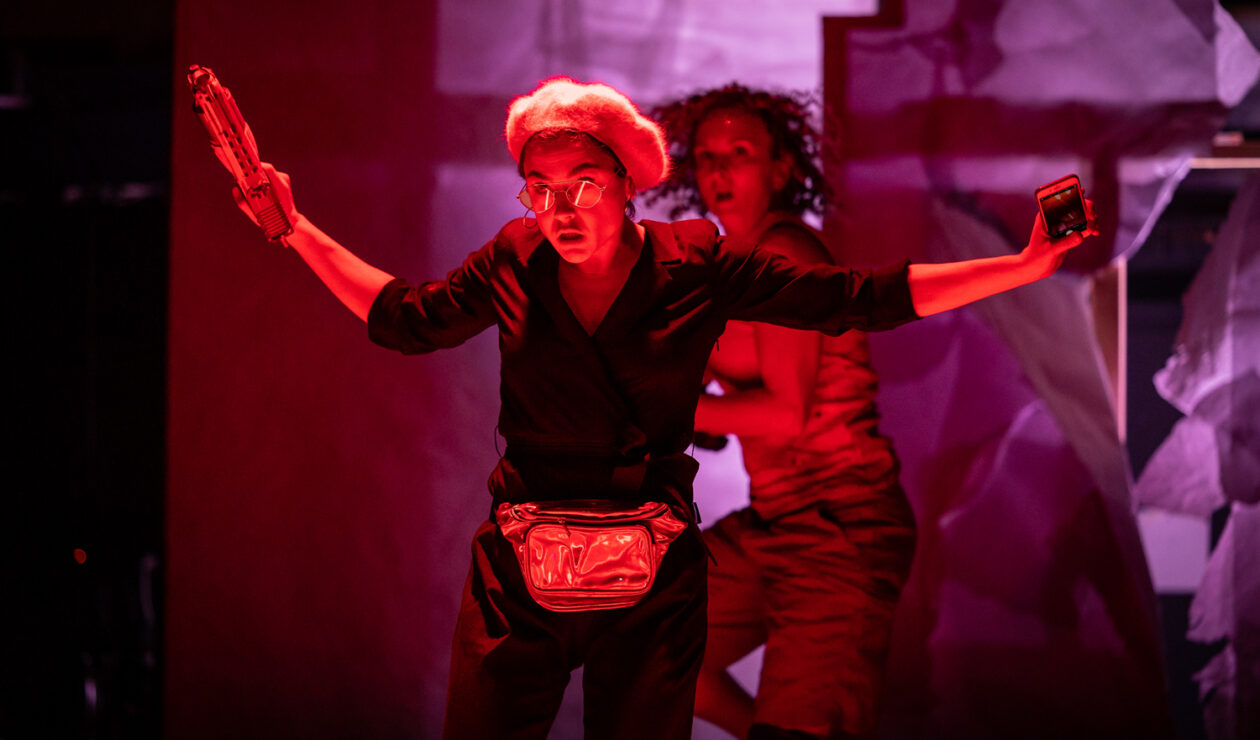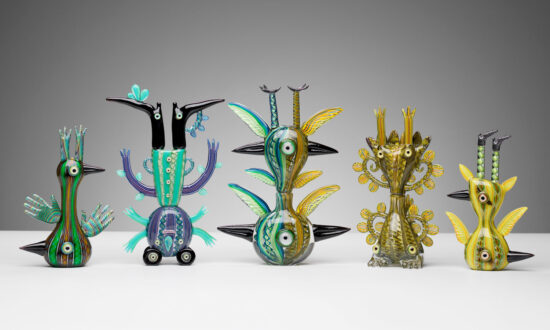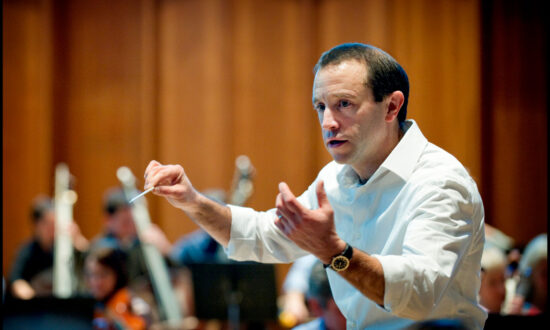“I want to be here; I just also want a sustainable arts career.”
James Watson, co-founder of independent theatre company Famous Last Words, is pondering the challenges that face emerging professional playwrights like himself.
Mentioning a recent article by Professor Julian Meyrick on the Albanese Government’s new National Cultural Policy (NCP), he says that independent artists are often sold a notion of self-determinism through project-oriented funding structures, which require them to be their own producers, marketing managers, publicists, venue managers and administrators:
“Creatives are often encouraged by funding structures to engage in entrepreneurialism, rather than be solely creative people that are employed externally,” Watson says.
While this can have some positives in encouraging artists to be more self-reliant, Watson says it “can be a challenge because suddenly you’re facing all these extra questions and problems that you’re not necessarily equipped for coming out of an arts school, or a drama school specifically”.
Producing their own work independently is a necessity for most artists in South Australia. Famous Last Words – which is currently presenting its latest show Proud, exploring the phenomenon of disaffected young men falling sway to far-right ideology – is one such company. Co-artistic directors Watson and recent Flinders acting graduate Emelia Williams created the company as a vehicle for their development as creatives, but also as a way of sustaining themselves and their peers outside of the peak festival season in Adelaide.
Watson expresses some dismay at the all-or-nothing experience many Adelaideans have of the arts during “Mad March”.
“I caught up with [actor] Hans Kesting from Amsterdam, who came over for the [2023 Adelaide] Festival with A Little Life. I said: ‘It’s so hard to get shows up throughout the year’. He asked: ‘Why? The city is so vibrant in March.’ ‘Yeah, in March…’.”

James Watson (centre) during production of Famous Last Words’ Miss Julie. Photo: supplied
Holding an MFA in Writing for Performance from NIDA, Watson says his time studying in Sydney demonstrated what a more vibrant independent sector in Adelaide could look like for emerging artists sustaining a career in theatre.
“It feels like there’s a clearer path. It’s possible to do a small show at Kings Cross, do a few indie shows, get something at the Fitz [Sydney’s Old Fitz Theatre], then find a place at Griffin [Theatre Company]… there’s a real pyramid of progression.”
Watson recently assisted a friend with locating a venue in Adelaide for a production of their new work – something that has become more difficult since the closure of key independent spaces such as Bakehouse Theatre and Rumpus, and before that the cabaret venue La Boheme.
“In Adelaide, the challenge is not only how do we keep what is there – which feels constantly threatened – but how do we actually grow? Otherwise, creatives are, and will continue to, leave.”

Clara Solly-Slade. Photo: supplied
When asked what drives her to keep going, professional theatre director Clara Solly-Slade chuckles.
“Just a fair amount of stubbornness,” she quips.
Solly-Slade is the co-founder of Kinetik Collective, which recently produced the controversial David Finnigan play Kill Climate Deniers to critical acclaim. She is also a member of The Bait Fridge, a multi-disciplinary arts collective based in a former shopfront on Goodwood Road. The Bait Fridge features visual artists, musicians and performing artists in a series of highly varied public interventions and experimental performances, from an immersive “venue takeover” at The Lab, to interactive costume workshops at the Art Gallery of South Australia.
Solly-Slade sees her participation in the collective as the source of her continued enthusiasm for her craft and career.
“There’s just a real joy in the work that we produce, and there’s a silliness, and it feels like messiness, and that failure is embraced in that space, which as an artist is amazing to have access to. I think the thing that is strongest about it is that it’s a really strong, vibrant community of people that care about each other… it’s the people we get to collaborate with that keeps us coming back.”
Fear of failure is often tied to the “hand-to-mouth” nature of arts funding. Because a project has to be costed exactly to receive a grant, and because grant rounds are often highly competitive, Solly-Slade says “it doesn’t feel like there’s the wriggle room to take creative risks”.
The majority of funding nearly always goes into the creative product, and artist wages or admin fees are usually the first to be cut back to fit a budget. This places a greater burden on the artists who, like members of Kinetik Collective during the production process of Kill Climate Deniers, usually do the administrative and producing themselves as unpaid or “in-kind” labour.
“Admin and producer roles are the first thing to go off the grant application to cut the money back… we did all of our own producing stuff,” says Solly-Slade. “And how do you have the opportunity to make a business sustainable when we don’t have any infrastructure?”

The Bait Fridge’s Human Body. Photo: Morgan Sette / supplied
An interesting comparison point to today’s predicament is Solly-Slade’s experience during the peak COVID-19 pandemic response. While COVID was no easy time for artists, with seasons cancelled and many small-scale arts companies left out of government stimulus, some increased funding enabled more experimentation by organisations, and the potential for new creative development.
Solly-Slade notes that her employment in Slingsby’s Flying Squad provided her a degree of financial security that was unusual prior to COVID. This new ensemble, supported by federal and state funding, enabled the full-time, salaried employment by Slingsby of five South Australian artists from multiple disciplines to create and deliver touring performances across the state.
“I worked with Slingsby full-time and they had me funded – they went for an artist employment grant, which came out of the Arts Recovery Fund, and in Bait Fridge we got an artist employment grant, and out of that we did a residency at The Lab, and we were all able to pay our rent… [things are] pretty grim at the moment, whereas the last couple of years were pretty good, and now we’re just in a ‘Okay, how are we paying rent?’ situation again.”
in the independent scene we need boldness to be embraced and risks to be taken in order to thrive
The artist-employment model somewhat resembles that of British repertory theatre and the ensemble companies common in Germany, but is unusual in Australia. Here, the norm is a “gig work” model that requires artists be responsible for running their own business as a sole trade. This is in addition to spending many hours of unpaid labour on auditions, grant applications and other administration tasks.
Often, the result of these pressures is burnout.
When theatre collective Rumpus lost its home at Bowden earlier this year, co-founder Nescha Jelk told InReview that finding a new, accessible space in or near the CBD was only one of the challenges it faced. With the huge number of volunteer hours committed by the collective’s executive committee no longer sustainable, it also needed substantial funding support so it could actually pay people.
This year, Rumpus is running a series of workshops and discussions, including arts community consultation, in the hopes of restructuring to suit the current needs of the independent arts sector.

The former Rumpus Theatre space. Photo: Morgan Sette / supplied
Melissa Pullinger is co-founder of fledgling local theatre company CRAM Collective, which presented Something Big at Rumpus last year. She says the loss of Rumpus and other venues has a devastating impact on all artists in South Australia, who face a constant struggle to find suitable spaces for developing and presenting work.
“The closure of these venues can be disheartening, as it can feel like a lack of support for the wider independent artistic community,” she says, but adds that it also pushes CRAM to find “innovative and unexpected places to present our work”.
The State Government’s recent Arts and Cultural Infrastructure Survey noted that a common theme across arts organisations and individuals surveyed was “challenges with availability and affordability of spaces”. With stimulus measures of the COVID-era coming to an end this financial year, policy response in this area is seen as essential for the future of a sustainable arts sector in South Australia.
However, the Arts Industry Council of South Australia recently expressed broader concern about state arts funding in its 2023/2024 state budget response, noting that application of efficiency dividends to cultural institutions “will result in significant cuts – potentially in the millions – to cultural programs and employment”.
Pullinger says she and three fellow Flinders Drama Centre graduates established CRAM so they could create their own work that challenges “traditional theatrical conventions”, and she acknowledges it has been fortunate to receive funding support from the Helpmann Academy. She says that as an emerging company, collaboration with, and support from, other creatives is vital.
“It shouldn’t be about competition, and instead we can all achieve so much more when we work and learn together. In terms of audiences, it’s about getting out and supporting the artists. Ticket sales ensure a future for the piece, and mean that emerging companies, who quite often produce their own work, are able to focus on the art.”

Melissa Pullinger (far left) with Ren Williams and Aarod Vawser in CRAM Collective’s production of Something Big. Photo:Tom Kitney / supplied
Clara Solly-Slade expresses concern that without a thriving and supported independent arts ecosystem, main-stage and funded companies will suffer.
“Where are actors and directors getting their training, being in work and exploring ideas, and being match-ready when they come to a show? Where do actors get a chance?
“I think those stepping stones have to exist. In the dream version of the world, we would have an independent scene that’s pushing the boundaries and growing audiences.”

Get InReview in your inbox – free each Saturday. Local arts and culture – covered.
Thanks for signing up to the InReview newsletter.
All these theatre-makers acknowledge the goodwill and collaboration among arts institutions and those in the independent sector, particularly in the sharing of technical resources.
However, they agree there is a need for long-term investment in a small-to-medium sector, both for clearer pathways, and to enable a flourishing ecosystem that takes expectations away from the mainstage-funded companies as being sole providers of employment.
Solly-Slade says without this, experimentation will continue to be stifled, as the risks make failure out of reach for most independent artists.
“It makes creative risk-taking scary; in the independent scene we need boldness to be embraced and risks to be taken in order to thrive… it needs to be good work, and the key to good work is time, and that’s the one ingredient that no one seems to have enough of.”
Ultimately, the concern is that if Adelaide doesn’t provide its emerging artists with adequate support and opportunities for career development, they will continue to leave for interstate or overseas. The idea of the city as the “Athens of the South” feels like a myth to many of the current generation of independent artists, despite the huge amount of talent reflected in the sector.
“Adelaide has so much to offer – why aren’t we offering it?” asks Watson.
Support local arts journalism
Your support will help us continue the important work of InReview in publishing free professional journalism that celebrates, interrogates and amplifies arts and culture in South Australia.
Donate Here




